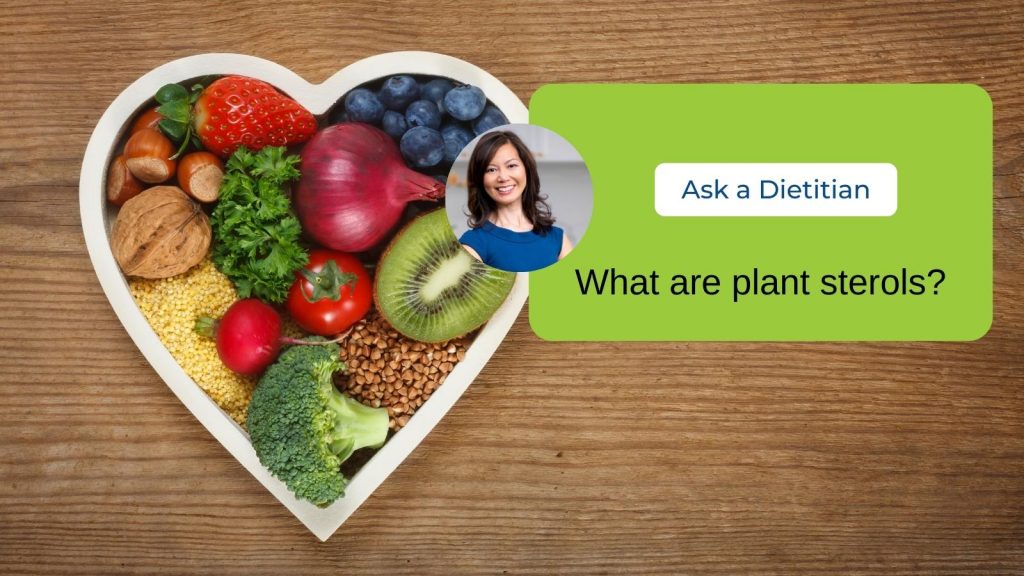
Plant sterols are also called “phytosterols” (phtyo means plant). They’re like cousins to cholesterol because they have a similar structure, and are found naturally (in tiny amounts) in plant-based foods – such as fruits, vegetables, nuts, grains and vegetable oils.
If you have high blood cholesterol, plant sterols may be beneficial because they’ve been shown to decrease the levels of “bad” LDL cholesterol (Low Density Lipoprotein cholesterol) – this is the type of cholesterol that is a risk factor for heart disease.
In the body, plant sterols partially block the absorption of cholesterol. The cholesterol gets removed as waste (i.e. in our feces) which then results in an overall lower level of LDL cholesterol in your blood.
So, how much plant sterol is needed for this benefit? Research shows that eating 2 grams (2,000 milligrams) of plant sterols every day can lower LDL cholesterol levels by 8-10%. This amount is nearly impossible to get with regular foods since a typical healthy diet only contains about 200-400 milligrams of plant sterols.
To get 2,000 milligrams of plant sterols a day, you’ll need to consume foods and beverages that are fortified with plant sterols. In Canada, foods fortified with plant sterols include mayonnaise, margarine, salad dressing, yogurt, yogurt drinks, vegetable juice and fruit juice. A serving of these foods may contain up to 1 gram (1,000 milligrams) of plant sterols, so read package labels to check the exact amount. Plant sterol supplements are another option.
Plant sterols from food and / or supplements are not a substitute for a heart healthy diet or cholesterol-lowering medications. Always check with your doctor first before consuming foods or supplements with plant sterols because your medications may need to be adjusted.
